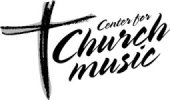Center For Church Music, Songs & Hymns

Recent articles
- Kids Choir Camp 2012: A Soldier of the Cross!
- Thursday Music at Peace
- Kids Choir Camp 2011: A Child of the KING!
- How You Can Help
- The Song of the Cross
Great Hymns of the Faith CDs
Categories
- Music
- The Weight of Glory
- Be Prepared
- Singing Hymns
- Scripture and Song
- Singing Lessons
- John Wesley on Singing
- Colossians 3:16
- Singing: A Call to Excellence
- Worship
- Billys Questions
- The Early Church
- Lent
- Singing Hymns
- C.S. Lewis on Worship
- Kids Choir Camp
- Song and the Spirit
- A Song of Christmas
- Knowing Christ
- Christmas Eve Truce
- Scripture and Song
- Heavenly Song
- Sing Praises
- True Worship
- A Sacrifice of Praise
- From the Choir Director
- Senior Choir Tips
- Worship
- The Last Words of Moses
Our Author

Music & Worship
A Divine Calling
< Previous Article | Next Article >
IN THE BOOK OF 1 CHRONICLES, WE FIND the first description of the "priestly calling" regarding the use of music in the formal worship of God. But, this mention of music is not the first time we see music referenced in the Old Testament.
As we discussed last time, the angelic host accompanied God's creative work by singing songs of praise. (Job 38) Moses and Miriam led the Israelites in praise after their triumphant Red Sea crossing. (Exodus 32) Deborah sang praise ("under God") for delivering the Israelites from Barak. (Judges 4)
Part of Saul's preparation for becoming the first King of Israel included "prophesying: with a variety of musical instruments. (I Samuel 10) (To 'prophesy' was not 'predicting the future', but it described creating musical proclamation and exhortation--God's truth--through the lyrics of the music.) And, of course, there is Elisha's famous command to "bring me a musician..." found in 2 Kings 3:14-16. These are but a few instances of the use of music in the Old Testament before David organized the Levites in a mighty musical force.
In 1 Chron. 16:1-4, we see that as soon as the Ark of the Covenant was placed in its tent in the City of David (Jerusalem) the Levites began their highly organized duties of praising God. Inspired by God, King David "invented" a variety of instruments that would be used on a daily basis for the praise and worship of God.
He chose 4,000 skilled Levites to be full-time instrumentalists and singers. To lead this highly structured music program, David designated four Levites as the leaders of the Levitical music organization:
- Chenaniah, leader of all the Levites
A great singer and skillful in music.
His job was to train all the singers. - Asaph, the chief of all musicians
55 Psalms are dedicated to him;
He was to lead the great choir and to be in charge of training the musicians. - Heman, associate chief musician He apparently wrote Psalm 88.
- Jeduthun (sometimes referred to as Ethan), associate chief musician
His name is mentioned at the beginning of three psalms: 39, 62, 77.
He was a skilled musician and prophesied "to give thanks and prase the LORD."
From David--until today, it is clear that the people of God cannot worship Him in any way that they please. God's direction to David set a principle in motion that is just as important in our worship today as it was almost 3,000 year ago. More next time...
(If you have a chance, read 1 Chronicles 15, 16 and 25.)
